
- Email support@dumps4free.com

An engineer must configure an AppGoE service node for WAN optimization for applications that are hosted in the cloud using Cisco vManage for C8000V or C8500L-8S4X devices. Drag and drop the steps from the left onto the order on the right to complete the configuration.

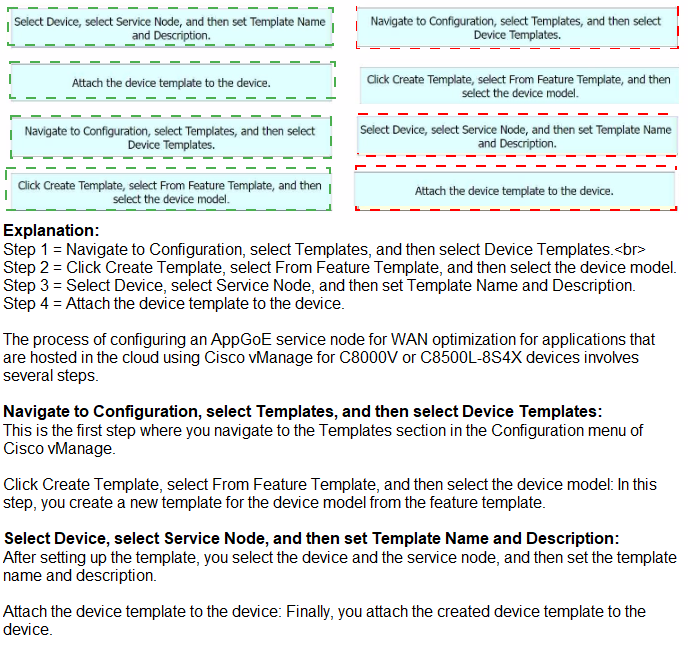
A company with multiple branch offices wants a connectivity model to meet its network architecture requirements. The company focuses on ensuring low latency and efficient routing for its critical business applications. Which connectivity model meets these requirements?
A. hub-and-spoke topology with SD-WAN technology, using dynamic routing and OSPF as the routing protocol
B. fully meshed topology with SD-WAN technology, using dynamic routing and BGP as the routing protocol
C. point-to-point topology using dedicated leased lines and static routing
D. star topology with internet-based VPN connections and static routing
Explanation: A fully meshed topology with SD-WAN technology, using dynamic routing
and BGP as the routing protocol, meets the requirements of the company because it
provides the following benefits:
It allows direct and secure connectivity between any two branch offices, without
the need for a central hub or intermediary devices12. This reduces the latency and
improves the performance of the critical business applications.
It leverages SD-WAN technology to optimize the traffic flow and application quality
of service (QoS) across the WAN13. SD-WAN can dynamically select the best
path for each application based on the network conditions and policies13. SDWAN
can also provide redundancy, security, and visibility for the WAN13.
It uses dynamic routing and BGP as the routing protocol to exchange routing
information and establish connectivity between the branch offices14. BGP is a
scalable and flexible protocol that can support multiple address families, such as
IPv4 and IPv6, and multiple routing policies, such as local preference and route
filtering14. BGP can also enable seamless integration with the cloud service
providers (CSPs) and internet service providers (ISPs)14.
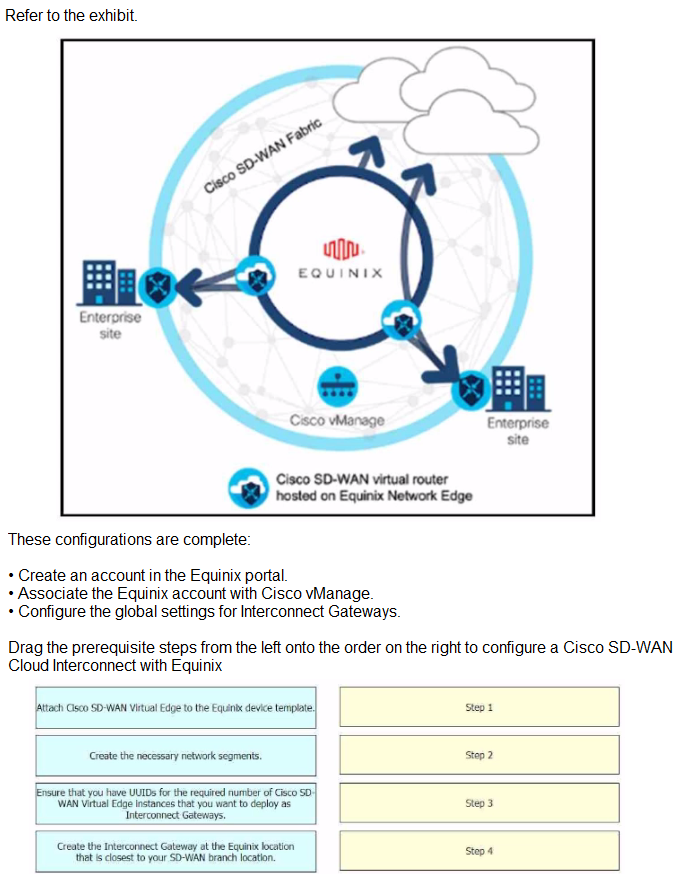
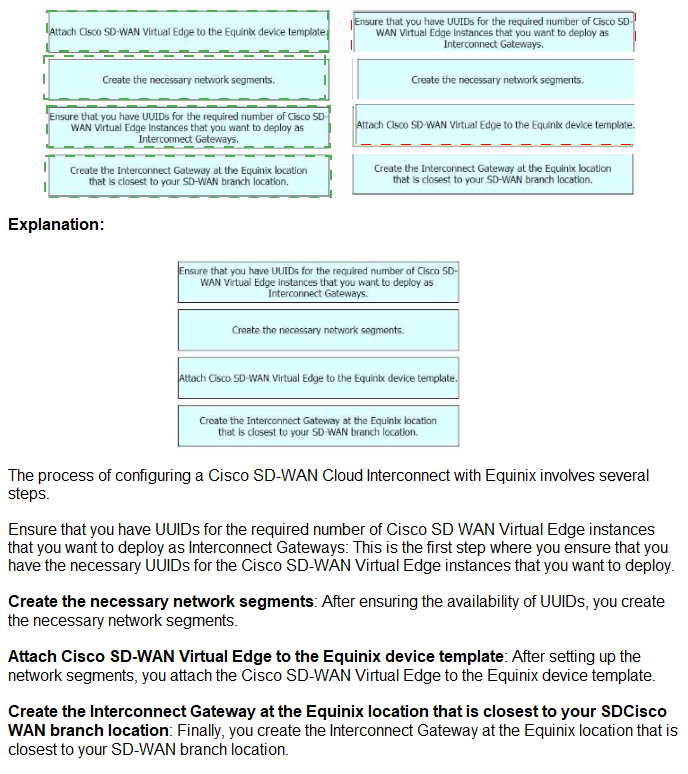
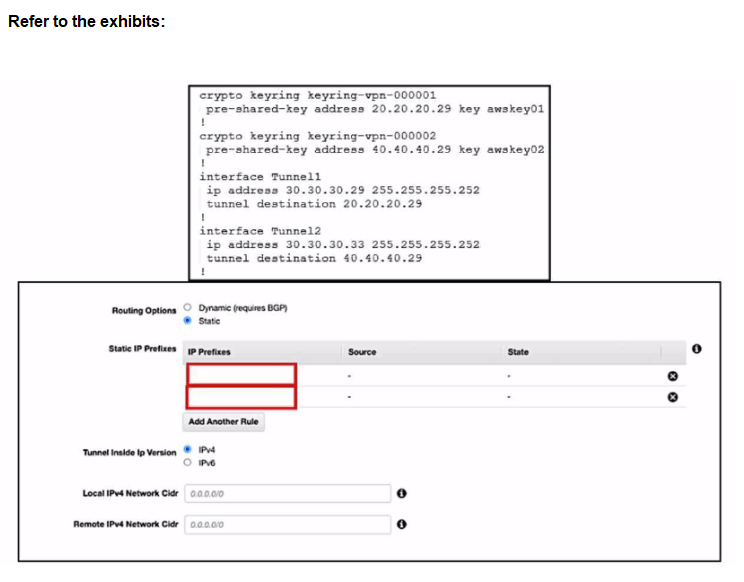
An engineer needs to configure a site-to-site IPsec VPN connection
between an on premises Cisco IOS XE router and Amazon Web Services (AWS). Which
two IP prefixes should be used to configure the AWS routing options? (Choose two.)
A. 30.30.30.0/30
B. 20.20.20.0/24
C. 30.30.30.0/24
D. 50.50.50.0/30
E. 40.40.40.0/24
Explanation: The correct answer is A and E because they are the IP prefixes that match the tunnel interfaces on the Cisco IOS XE router. The AWS routing options should include the local and remote IP prefixes that are used for the IPsec tunnel endpoints. The other options are either the public IP addresses of the routers or the LAN subnets that are not relevant for the IPsec tunnel configuration.
An engineer must edit the settings of a site-to-site IPsec VPN connection between an onpremises Cisco IOS XE router and Amazon Web Services (AWS). IPsec must be configured to support multiple peers and failover after 120 seconds of idle time on the first entry of the crypto map named Cisco. Drag and drop the commands from the left onto the order on the right.

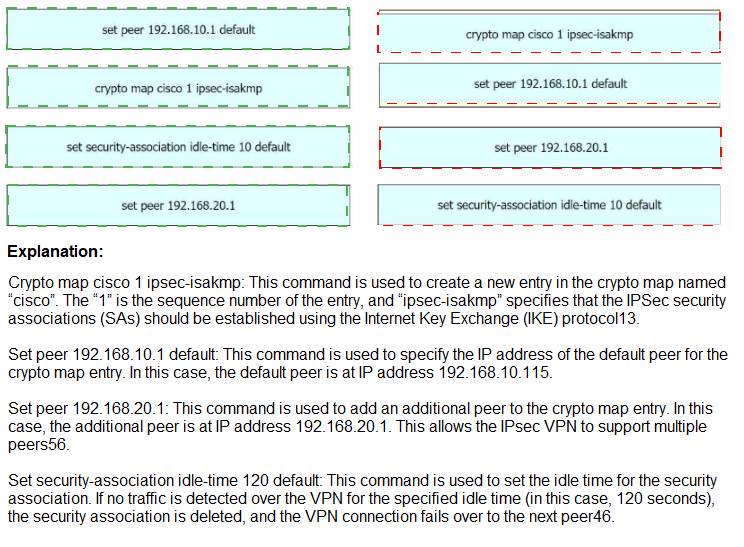
| Page 1 out of 8 Pages |